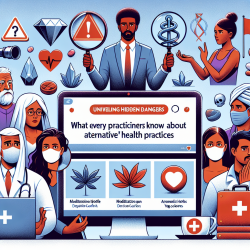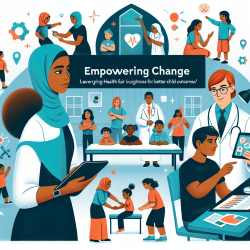Introduction
In the world of speech-language pathology, creating effective and meaningful outcomes for children is paramount. This blog explores how insights from the research article "Expanding the Debate" can enhance practitioners' skills by implementing citizen participation strategies from Brazil's health system. By focusing on data-driven decisions, we can improve accountability and resource distribution, ultimately benefiting children's health outcomes.
Understanding the Brazilian Model
Brazil's Constitution enshrines the right to health, emphasizing citizen participation in health planning. This participatory approach, operationalized through the National Health Council (NHC), seeks to balance individual and societal interests, ensuring fair resource distribution and accountability. By involving citizens in health planning, Brazil aims to improve health outcomes for the entire population, not just those with court access.
Lessons for Speech-Language Pathologists
Speech-language pathologists can draw valuable lessons from Brazil's model:
- Data-Driven Decisions: Utilize data to inform therapy plans, ensuring resources are allocated effectively to meet diverse needs.
- Community Engagement: Involve parents and caregivers in the therapy process, fostering a collaborative approach to children's health.
- Accountability and Transparency: Implement transparent processes for evaluating therapy outcomes, ensuring accountability in resource allocation.
Implementing Participation in Practice
To enhance participation in your practice, consider these strategies:
- Open Communication Channels: Create forums for parents and caregivers to provide feedback and participate in decision-making.
- Leverage Technology: Use online platforms to facilitate communication and engagement with families, mirroring Brazil's virtual debates during NHC meetings.
- Continuous Professional Development: Stay informed about the latest research and best practices, integrating evidence-based strategies into your work.
Conclusion
Brazil's approach to health planning through citizen participation offers valuable insights for speech-language pathologists. By embracing data-driven decisions and fostering community engagement, practitioners can improve accountability and resource allocation, ultimately leading to better outcomes for children. To read the original research paper, please follow this link: Expanding the Debate.










